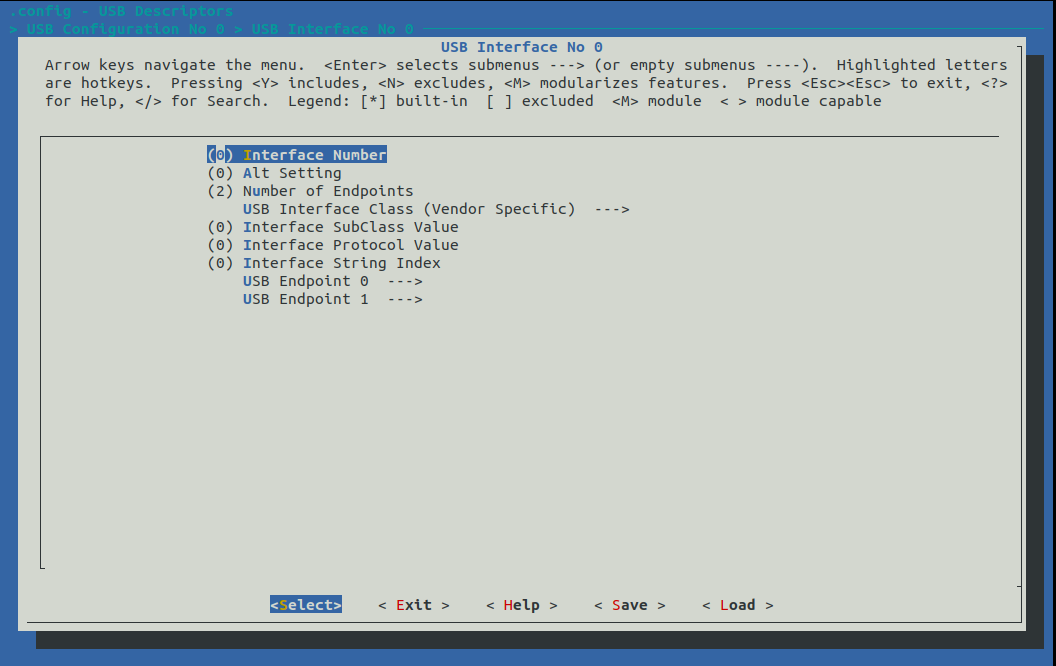A configurable USB 2.0 device core using nMigen
lambdaUSB is still in an experimental stage and is therefore incomplete. The user-facing API may change before reaching stability.
- High Speed USB
- up to 32 endpoints (16 inputs, 16 outputs)
- double buffering, per endpoint
Download and install lambdaUSB:
git clone https://github.com/lambdaconcept/lambdaUSB
cd lambdaUSB
python3 setup.py develop --user
- Instantiate the USB device:
m.submodules.ulpi_phy = ulpi_phy = ulpi.PHY(pins=platform.request("ulpi", 0))
m.submodules.usb_dev = usb_dev = usb.Device()
m.d.comb += [
ulpi_phy.rx.connect(usb_dev.rx),
usb_dev.tx.connect(ulpi_phy.tx),
]For the moment, only ULPI transceivers such as the USB3300 are supported.
- Instantiate endpoint interfaces:
ep1_in = usb.InputEndpoint(xfer=usb.Transfer.BULK, max_size=512)
ep1_out = usb.OutputEndpoint(xfer=usb.Transfer.BULK, max_size=512)- Add endpoint interfaces to the USB device:
usb_dev.add_endpoint(ep1_in, addr=1)
usb_dev.add_endpoint(ep1_out, addr=1)For a full example, have a look at examples/blinker.
For convenience, we provide a ConfigurationFSM to manage EP0 in lambdausb.usb.config.
It stores the configuration descriptors in a ROM, and responds to host requests.
To use it, you must first generate a config file:
cd tools/genconfig
make
You will be presented a menuconfig interface from which you can setup your USB device:
The output config.py file can be imported and used like so:
from lambdausb.usb.config import ConfigurationFSM
from config import descriptor_map, rom_init
m.submodules.cfg_fsm = cfg_fsm = ConfigurationFSM(descriptor_map, rom_init)
usb_dev.add_endpoint(cfg_fsm.ep_in, addr=0)
usb_dev.add_endpoint(cfg_fsm.ep_out, addr=0)
m.d.comb += usb_dev.addr.eq(cfg_fsm.dev_addr)lambdaUSB is released under the two-clause BSD license.

